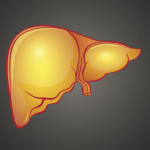Wasting syndrome was once a common and difficult-to-treat complication of HIV infection. But today, severe weight loss occurs much less frequently among people living with HIV and receiving antiretroviral (ARV) therapy. In fact, a recent study conducted at two naval clinics and published in the December 1 issue of AIDS Patient Care and STDs suggests that many HIV-positive people are obese or overweight—a risk factor for cardiovascular disease.
Increasing rates of obesity is a potential concern in light of studies showing people with HIV to be at higher risk of cardiovascular disease. No studies, however, have evaluated the prevalence and factors associated with obesity—itself a risk factor for heart-related problems—in HIV-positive patients.
To explore rates and potential causes of obesity in people with HIV, Nancy Crum-Cianflone, MD, MPH, from the U.S. Naval Medical Center in San Diego, examined the medical records of HIV-positive male patients being seen at two naval medical centers between June 2004 and June 2005. Crum-Cianflone’s team ultimately included the records of 661 patients in the study. The average age of the patients was 41, most of whom were either white or African American. Patients were classified as being either overweight or obese based on a calculation of their weight and height.
Fifty-four percent of the patients were either overweight or obese at the time of their HIV diagnosis. This increased to 63 percent at the time of their last recorded visit to the clinic. Of those classified as either overweight or obese at their first visit, 80 percent gained further weight over time. Of those who lost weight over time, most started out as obese or overweight, while people who were either underweight or had a normal weight at their diagnosis tended to gain weight.
Patients with high blood pressure, high triglycerides, elevated “bad” LDL cholesterol levels or a CD4 count that never dipped below 200 were the most likely to be overweight or obese. Conversely, age, race, duration of HIV infection or the type of ARV therapy used were not considered to be risk factors. However, study subjects infected with HIV at a younger age and living with the infection the longest were more likely to be overweight or obese.
Crum-Cianflone’s team comments that, given the high number of people who were overweight or obese at the time of their diagnosis, it appears that people with HIV are dealing with obesity to about the same degree as the general population. People with HIV, the study authors add, appear to face the same struggles with exercising and maintaining a healthy diet. The authors also suggest that weight management strategies be incorporated into HIV care.






Comments
Comments